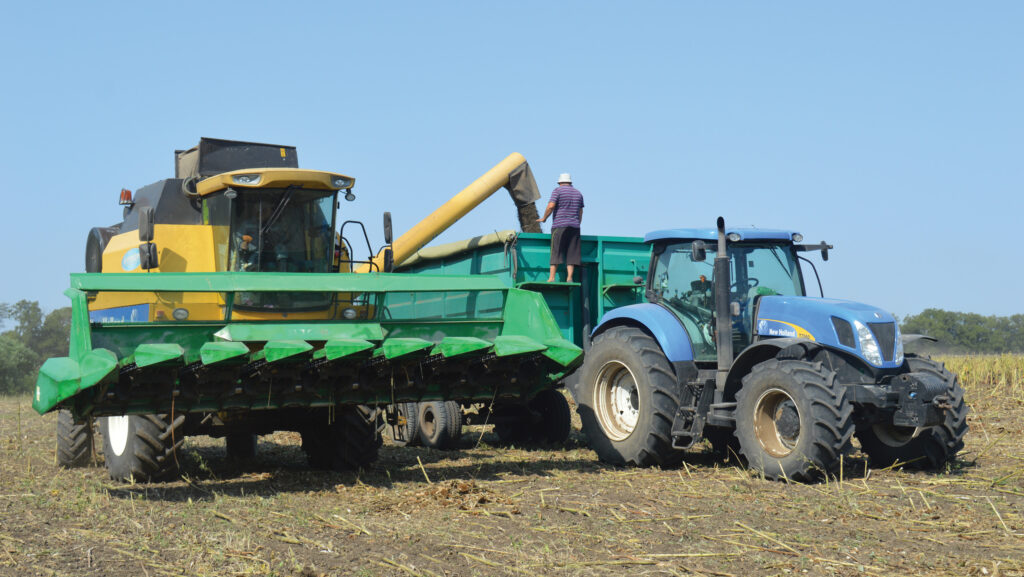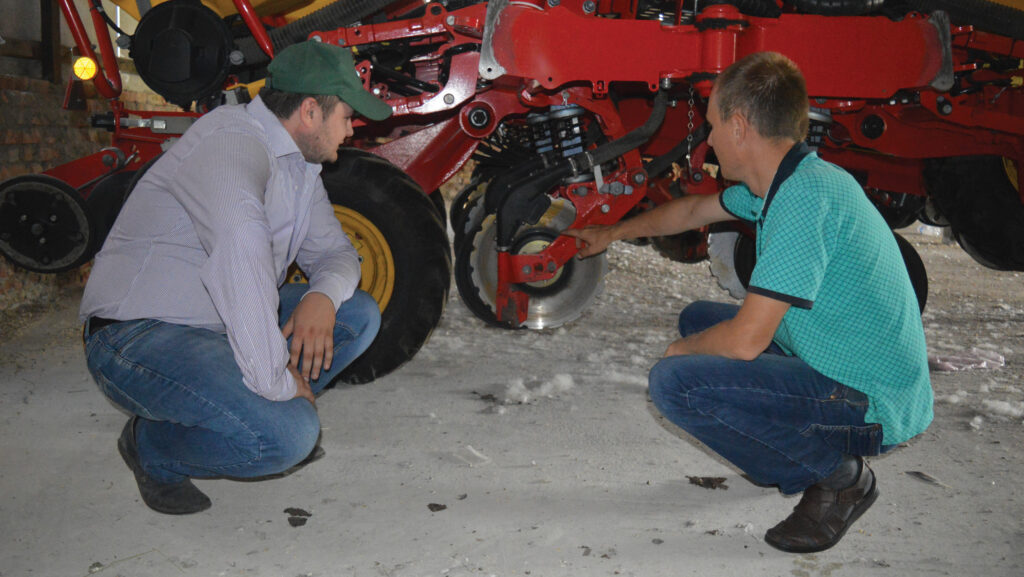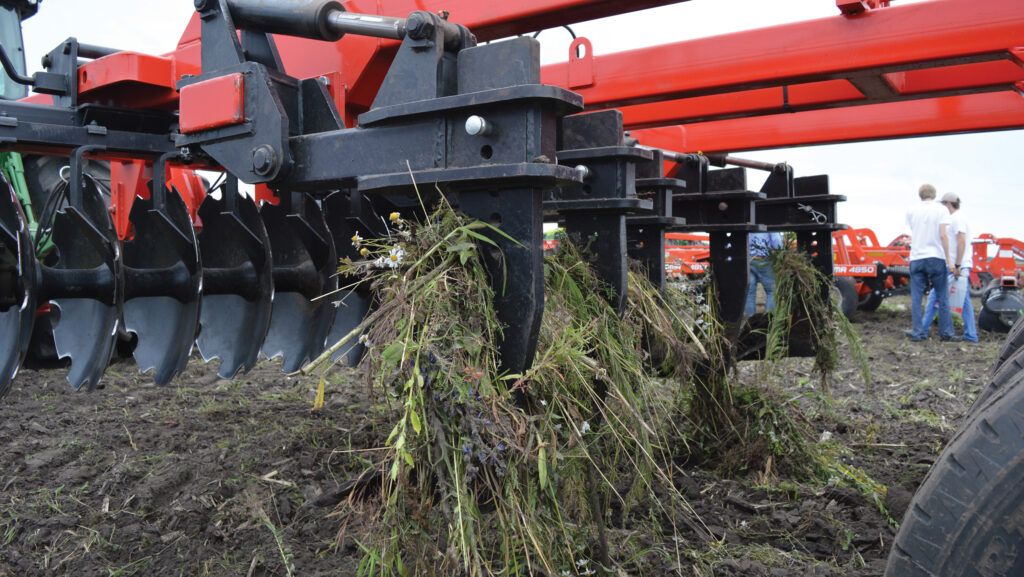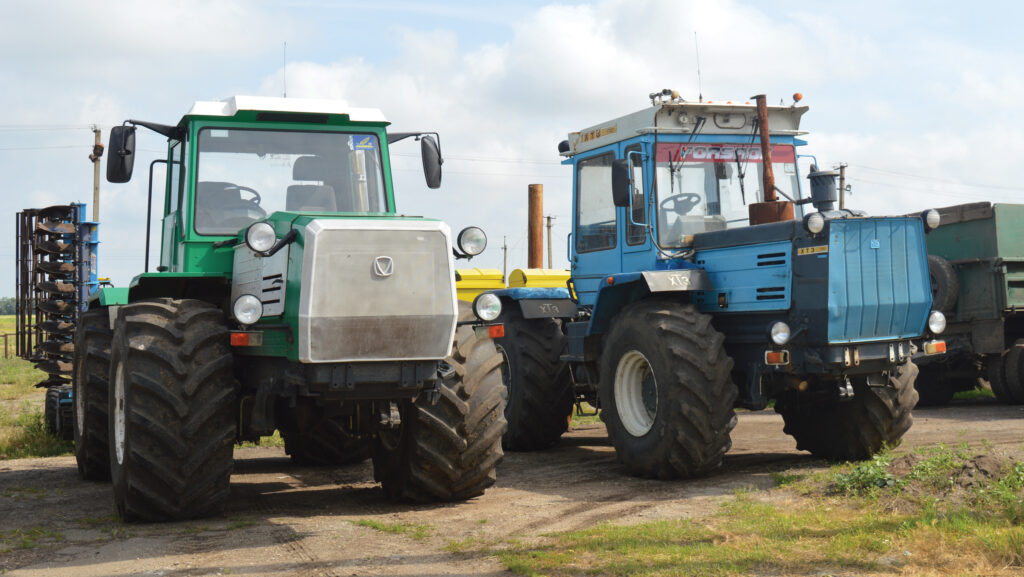Ukraine war: Government incentives boost farm machinery sales
 © Ihor Pavliuk
© Ihor Pavliuk An estimated 110,000 agricultural machines have been stolen or destroyed since Russia invaded Ukraine on 24 February 2022, leaving farms chronically short of equipment, staff and cash.
As well as the colossal financial losses and ruthless destruction of infrastructure, this year growers have been stoically battling the double whammy of a yield-savaging drought and low grain prices.
But that hasn’t deterred them from investing in new machinery, spurred on by an unprecedented 25% discount on locally produced tractors and implements.
This government-backed incentive has ramped up demand for Ukrainian-made cultivators, drills, sprayers and grain storage equipment.
See also: Video: Farm pickups take emotional journey to Ukraine war

© Ihor Pavliuk
Ukranian-made kit
“You can buy a ‘Made in Ukraine’ drill for €10,000-€20,000 [£8,400-£16,800], rather than €50,000 [£42,000] for something from the European Union [EU],” says Ukrainian journalist Ihor Pavliuk.
“Over the last decade these companies have significantly improved the quality of their products – such that many are exported to the EU – yet they have kept prices very low compared with well-known brands.”
True loyalists, and those on tight budgets, can pair their discounted implements with Ukrainian-made tractors – albeit often at the expense of reliability.
“These too cost a fraction of Western alternatives,” he adds.
“They are lower quality, but they are widely available and buying them both supports national manufacturers and encourages them to improve their build standards and technology in the long term.”

© Ihor Pavliuk
Affordability
Sales of European and North American equipment have also partially bounced back from the cliff-edge drop that followed the initial Russian invasion, particularly in regions where there are no hostilities.
“The war came straight after a year of record farm machinery sales [2021], when yields were high and crop prices strong,” says Ihor.
“But logistics were severed almost overnight – there was no fuel or spare parts – and demand remained low through 2023.
“Combine sales were down by 59% on a typical year, and tractors by almost 50%.
“At the same time, grain prices fell two to three times lower than the UK, and fertiliser and pesticide costs soared, so many growers were operating at a loss,” he adds.
“Somehow, the big, established agri-businesses have managed to find the money to buy the best equipment, regardless of the financial situation in the market.”
The recent uptick in sales is partly due to manufacturers and dealers accepting they must sell their products on favourable terms: low interest rates, big discounts, and cheap service packages also thrown in.
Similarly, financial institutions and merchants are no longer afraid to lend to farmers – even those working just 20 miles from enemy trenches.

© Ihor Pavliuk
Challenging year
But with machinery sales intrinsically linked to farm profitability, there could be another market downturn pending.
Though grain prices have risen, a months-long drought significantly reduced the yield of spring crops and diesel has doubled to roughly £1/litre.
Yet the pain is only likely to be short-term, says Ihor, with Ukrainian growers having already learned to live with the challenges of war.
“Farmers in the western and central regions are working normally – although they are in dire need of staff, many of whom have become soldiers – and even those in the northern and eastern regions carry on with the fieldwork, despite the risks,” he says.
“That means they will need working machinery. But the sad reality is that large quantities of modern weapons are far more important.”
Ursus lands in Ukrainian hands
Polish tractor brand Ursus has been snapped up by Ukrainian entrepreneur Oleg Krot, who recently secured a cut-price €17m (£14m) deal for the ailing business.
Following years of low sales and heavy losses, Ursus was declared bankrupt in 2021, and several failed attempts to find a buyer saw its value plummet by over 50%.
The new owner, MI Crow, has acquired the firm’s two Polish manufacturing facilities.
The tractor plant in Lublin, which has been effectively mothballed for the last two years, and a second in Dobre Miastro that produces muckspreaders, trailers and other implements.

